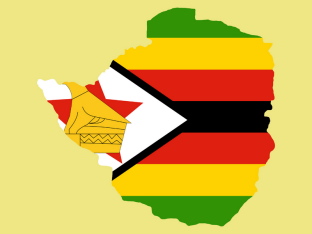
8 April 2007 — The letter, entitled ‘God Hears the Cries of the Oppressed’, draws on biblical imagery to get its strong message across. It has been described as the most critical pastoral message from the Catholic Church since Zimbabwe won the liberation struggle for independence in 1980 and Mugabe assumed leadership of the country.
The country is now reeling under hyperinflation of more than 1,700 per cent, 80 per cent unemployment, shortages of food and other basic goods and one of the world’s lowest life expectancies.
A similar letter in another African country, Malawi, pressured long term dictator Hastings Banda into holding a referendum on reform in 1992 and calling democratic elections. He lost, ending 30 years of brutal rule.
“We cannot yet say what the response of our congregations will be, but basic biblical teachings apply,” declared Fr Oskar Wermter from the Catholic communications secretariat in the capital, Harare. “Oppression is not negotiable. It must stop before there can be any dialogue.”
Wermter said that the bishops wanted the contents of the letter to receive the widest possible distribution. It was delivered in the traditional rural strongholds of Mugabe’s ruling ZANU-PF party across the country, where priests showed what he called a very strong interest in it.
In his traditional ‘Urbi et Orbi’ Easter address from the central balcony of St Peter’s Basilica, Pope Benedict also singled out Zimbabwe as a nation suffering under a yolk of oppression.
“Zimbabwe is in the grip of a grievous crisis and for this reason the bishops of that country in a recent document indicated prayer and a shared commitment for the common good as the only way forward,” the Pope declared.
The bishops have drawn an analogy between the current struggle for social justice and democracy and the struggle for liberation from white rule. In their pastoral document, they elaborate theological insights which cast Zimbabwe’s rulers in the role of oppressors, and ordinary Zimbabweans as the oppressed: “Oppression is sin and cannot be compromised with,” they say. “It must be overcome. God takes sides with the oppressed.”
They suggest that young Zimbabweans see their leaders “habitually engaging in acts and words which are hateful, disrespectful, racist, corrupt, lawless, unjust, greedy, dishonest and violent…” The language of the letter might have been expected from Archbishop Pius Ncube of Bulawayo, but is extraordinarily harsh for a formal joint statement from the country’s Catholic Bishops’ Conference. The letter says black Zimbabweans are today fighting for the same rights they fought for during the liberation struggle.
“It is the same conflict between those who possess power and wealth in abundance, and those who do not; between those who are determined to maintain their privileges of power and wealth at any cost, even at the cost of bloodshed, and those who demand their democratic rights and a share in the fruits of independence; between those who continue to benefit from the present system of inequality and injustice, because it favours them and enables them to maintain an exceptionally high standard of living, and those who go to bed hungry at night and wake up in the morning to another day without work and without income; between those who only know the language of violence and intimidation, and those who feel they have nothing more to lose because their Constitutional rights have been abrogated and their votes rigged.
“Many people in Zimbabwe are angry, and their anger is now erupting into open revolt in one township after another.”
The bishops warn that the country has reached what they call “a flashpoint,” and is in an “extremely volatile” situation. “As the suffering population becomes more insistent, generating more and more pressure through boycotts, strikes, demonstrations and uprisings, the State responds with ever harsher oppression through arrests, detentions, banning orders, beatings and torture.”
To avoid further bloodshed “and avert a mass uprising,” the bishops call for “a new people-driven Constitution that will guide a democratic leadership chosen in free and fair elections…” Their statement identifies the crisis in Zimbabwe as “first and foremost a spiritual and moral crisis,” but also a crisis of governance and of leadership. There are Christians, including office-bearers of the Catholic Church, on both sides of the current struggle, the bishops say: “They are all baptised, sit and pray and sing together in the same church, take part in the same celebration of the Eucharist and partake of the same Body and Blood of Christ. While the next day, outside the church, a few steps away, Christian State Agents, policemen and soldiers assault and beat peaceful, unarmed demonstrators and torture detainees.”
The Catholic Church has been an important force in Zimbabwean society, more supportive of the liberation struggle than many other churches. President Robert Mugabe is among many Zimbabwean leaders who were educated by Catholic institutions.
[Additional reporting courtesy of John Allen, ZW News]
© 2007 Ekklesia. Posted on Religioscope with permission. An initiative of the Anvil Trust, Ekklesia is a not-for-profit think-tank which works to promote theological ideas in the public square. Website: www.ekklesia.co.uk